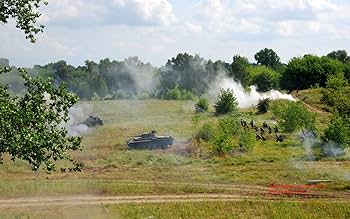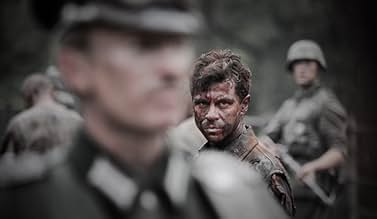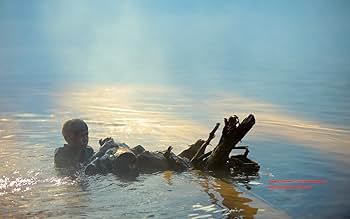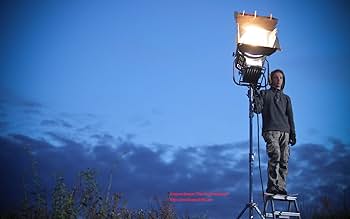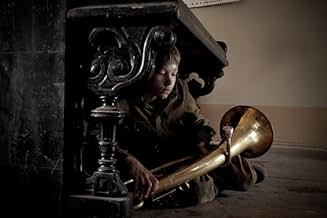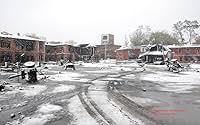VALUTAZIONE IMDb
7,4/10
10.708
LA TUA VALUTAZIONE
Aggiungi una trama nella tua linguaA war drama set during the Nazi invasion of the Soviet Union in June 1941, in which Soviet troops held on to a border stronghold for nine days.A war drama set during the Nazi invasion of the Soviet Union in June 1941, in which Soviet troops held on to a border stronghold for nine days.A war drama set during the Nazi invasion of the Soviet Union in June 1941, in which Soviet troops held on to a border stronghold for nine days.
- Premi
- 7 vittorie e 14 candidature
Aleksey Kopashov
- Sashka Akimov
- (as Alyosha Kopashov)
Anna Tsukanova-Kott
- Sonya
- (as Anna Tsukanova)
Trama
Lo sapevi?
- BlooperAround time code 1h20, we see Stukas bombing the fortress. The firsts Stukas pass arrive correctly. The other Stukas have their head down and arrive on the back. Technicians have probably inverted the images.
- ConnessioniFeatures Tutto il mondo ride (1934)
Recensione in evidenza
If you read my title, you might consider the comparison perhaps the most famous American world war epic odd, but I'll explain that shortly.
To get the necessities out of the way--the film describes the fall of the Brest Fotress in far western Belarus (or Byelorussian SSR, in this case). The film does not elaborate on the history, as already pointed out: it does not point out that Brest was captured from Poland just two years earlier, courtesy of the Brest-Litovsk Treaty. Nor does it mention the Polish population of Brest, forced west or deported to the east by the government after that fact. And finally, it does not mention that Brest, like the rest of Western Belarus, was subject to a Polish colonization effort after Poland annexed it (during the first Polish-Soviet War, which they won) and under military rule due to conflicts between Poles and Belarusians. All of this is, as it happens, not relevant to the movie makers, and given how few people have heard of the first Polish-Soviet War, the Polonization of West Belarus, or the deportation of Brest's Polish residents, it's not surprising. Outside of the CIS countries and eastern Poland, you'll be surprised to find anyone know knows Belarus is its own country. Brest is a rough, rural, but otherwise idyllic countryside town--unbelievable from a western perspective, perhaps, but not in conflict with survivor narratives we have today, and intended to set up the disaster that follows.
The movie DOES offer some historic context, however--it begins with Major Gavrilov's warning of an impending disaster for Brest, and the Brest Fortress, in the event of a German invasion, though he is dismissed by skeptical comrades more trusting of their country's "ally". When the war begins in earnest, Gavrilov, Commissar Fomin, and Lieutenant Kizhevatov rally a bloody, nearly fanatical defense of their country and, for many, their home against the German invasion. This makes up the meat of the movie, with the narrative of a foster student Sashka, attached to a military band, caught in the middle. The war cinematography is thrilling and exciting, comparable to the aforementioned "Saving...", albeit with an emphasis on brutal close-quarters fighting--exaggerated, potentially, for the necessity of emphasizing the difference between mechanized warfare in the field and indoor fighting in somewhere like Brest or Stalingrad. Seeing the Soviet defenders--mostly Red Army men, joined by die-hard Frontier troops and a few NKVD Rifle Battalion NCOs, from what I see--counter-attack German positions with shovels and chairs as well as rifles and machineguns seems unbelievable at first, but it doesn't clash with the western narrative of a primitive Red Army, or accounts of hand-to-hand fighting from both world wars. The disastrous results that usually follow serve as a reminder that this isn't something fantastical like "Enemy at the Gates" or an optimistic adventure like "Inglorious Bastards". Thhe defenders themselves are portrayed as human and vulnerable, capable of tears, despair and emotion at inopportune times--though it suffers from a "blink and you'll miss it", situation the scant non-Slavs shown in the Red Army.
As a war movie, it's portrayal of the German enemy is naturally important. The Germans are portrayed, as usual, as organized, very competent, and extremely clever--an infiltration scene early on, wherein German commandos impersonate NKVD NCOs to enter the fortress highlights this. However, there's hardly any more demonization of them then in "Saving Private Ryan" or "Band of Brothers", in part because they're also portrayed distantly and hidden, in contrast with the very human Soviet defenders--with a few exceptions. In one, some Germans are shown about to assault a captured woman, who is ultimately gunned down--this is hardly unbelievable, and it serves more to show the guilt felt by a (civilian) Byelorussian at having used the distraction she provided to escape his own fate, than the Germans being ravenous monsters. In another, the advancing Germans gun down fleeing civilians from a machinegun position. Damning, certainly, but consider: during the German occupation, between 2 and 2.5 million people in Byelorussia, of nine million, perish. The scene, if fictionalized, is likely intended to demonstrate the particular callousness the Germans, as a whole, displayed towards "Reichskommissariat Ostland". Aside from this, Germans usually seem distant and, on occasion, just as desperate as their Soviet enemies.
"Fortress" stands well with its American counterparts, and even decently with epics like "Come and See", ending with a sobering tribute to the film's historical personalities--the vindicated Pyotr Gavrilov is explained as having survived German captivity only to be imprisoned for the act of surrender (though the movie inaccurately suggests such a fate befell "most" POWs, when it was primarily inflicted on officers and others who carried more "blame"), only to be rehabilitated and made Hero of the USSR in 1957, in a damning critique of the country, and Stalin's, complacency towards Germany. The Jewish Commissar Fomin, being twice a target of the German Commissar Order, is executed immediately. The movie goes out of its way to defend those who did surrender, suggested they only did so at the behest of the defenders, after army men begged their families to take the German offers for leniency. Soldiers who surrender are shown as only having been human, witnesses to extraordinary violence, and are understandably broken, and even have a degree of sympathy from those who fight on. All and all, this is a well-done, particularly sympathetic, and highly enjoyable war epic that maintains the tradition of sobering portrayals we've expected from CIS cinematography on the Second World war.
To get the necessities out of the way--the film describes the fall of the Brest Fotress in far western Belarus (or Byelorussian SSR, in this case). The film does not elaborate on the history, as already pointed out: it does not point out that Brest was captured from Poland just two years earlier, courtesy of the Brest-Litovsk Treaty. Nor does it mention the Polish population of Brest, forced west or deported to the east by the government after that fact. And finally, it does not mention that Brest, like the rest of Western Belarus, was subject to a Polish colonization effort after Poland annexed it (during the first Polish-Soviet War, which they won) and under military rule due to conflicts between Poles and Belarusians. All of this is, as it happens, not relevant to the movie makers, and given how few people have heard of the first Polish-Soviet War, the Polonization of West Belarus, or the deportation of Brest's Polish residents, it's not surprising. Outside of the CIS countries and eastern Poland, you'll be surprised to find anyone know knows Belarus is its own country. Brest is a rough, rural, but otherwise idyllic countryside town--unbelievable from a western perspective, perhaps, but not in conflict with survivor narratives we have today, and intended to set up the disaster that follows.
The movie DOES offer some historic context, however--it begins with Major Gavrilov's warning of an impending disaster for Brest, and the Brest Fortress, in the event of a German invasion, though he is dismissed by skeptical comrades more trusting of their country's "ally". When the war begins in earnest, Gavrilov, Commissar Fomin, and Lieutenant Kizhevatov rally a bloody, nearly fanatical defense of their country and, for many, their home against the German invasion. This makes up the meat of the movie, with the narrative of a foster student Sashka, attached to a military band, caught in the middle. The war cinematography is thrilling and exciting, comparable to the aforementioned "Saving...", albeit with an emphasis on brutal close-quarters fighting--exaggerated, potentially, for the necessity of emphasizing the difference between mechanized warfare in the field and indoor fighting in somewhere like Brest or Stalingrad. Seeing the Soviet defenders--mostly Red Army men, joined by die-hard Frontier troops and a few NKVD Rifle Battalion NCOs, from what I see--counter-attack German positions with shovels and chairs as well as rifles and machineguns seems unbelievable at first, but it doesn't clash with the western narrative of a primitive Red Army, or accounts of hand-to-hand fighting from both world wars. The disastrous results that usually follow serve as a reminder that this isn't something fantastical like "Enemy at the Gates" or an optimistic adventure like "Inglorious Bastards". Thhe defenders themselves are portrayed as human and vulnerable, capable of tears, despair and emotion at inopportune times--though it suffers from a "blink and you'll miss it", situation the scant non-Slavs shown in the Red Army.
As a war movie, it's portrayal of the German enemy is naturally important. The Germans are portrayed, as usual, as organized, very competent, and extremely clever--an infiltration scene early on, wherein German commandos impersonate NKVD NCOs to enter the fortress highlights this. However, there's hardly any more demonization of them then in "Saving Private Ryan" or "Band of Brothers", in part because they're also portrayed distantly and hidden, in contrast with the very human Soviet defenders--with a few exceptions. In one, some Germans are shown about to assault a captured woman, who is ultimately gunned down--this is hardly unbelievable, and it serves more to show the guilt felt by a (civilian) Byelorussian at having used the distraction she provided to escape his own fate, than the Germans being ravenous monsters. In another, the advancing Germans gun down fleeing civilians from a machinegun position. Damning, certainly, but consider: during the German occupation, between 2 and 2.5 million people in Byelorussia, of nine million, perish. The scene, if fictionalized, is likely intended to demonstrate the particular callousness the Germans, as a whole, displayed towards "Reichskommissariat Ostland". Aside from this, Germans usually seem distant and, on occasion, just as desperate as their Soviet enemies.
"Fortress" stands well with its American counterparts, and even decently with epics like "Come and See", ending with a sobering tribute to the film's historical personalities--the vindicated Pyotr Gavrilov is explained as having survived German captivity only to be imprisoned for the act of surrender (though the movie inaccurately suggests such a fate befell "most" POWs, when it was primarily inflicted on officers and others who carried more "blame"), only to be rehabilitated and made Hero of the USSR in 1957, in a damning critique of the country, and Stalin's, complacency towards Germany. The Jewish Commissar Fomin, being twice a target of the German Commissar Order, is executed immediately. The movie goes out of its way to defend those who did surrender, suggested they only did so at the behest of the defenders, after army men begged their families to take the German offers for leniency. Soldiers who surrender are shown as only having been human, witnesses to extraordinary violence, and are understandably broken, and even have a degree of sympathy from those who fight on. All and all, this is a well-done, particularly sympathetic, and highly enjoyable war epic that maintains the tradition of sobering portrayals we've expected from CIS cinematography on the Second World war.
I più visti
Accedi per valutare e creare un elenco di titoli salvati per ottenere consigli personalizzati
- How long is Fortress of War?Powered by Alexa
Dettagli
- Data di uscita
- Paesi di origine
- Sito ufficiale
- Lingue
- Celebre anche come
- Fortress of War
- Luoghi delle riprese
- Aziende produttrici
- Vedi altri crediti dell’azienda su IMDbPro
Botteghino
- Lordo in tutto il mondo
- 4.569.604 USD
- Tempo di esecuzione2 ore 18 minuti
- Colore
- Mix di suoni
- Proporzioni
- 2.35 : 1
Contribuisci a questa pagina
Suggerisci una modifica o aggiungi i contenuti mancanti


